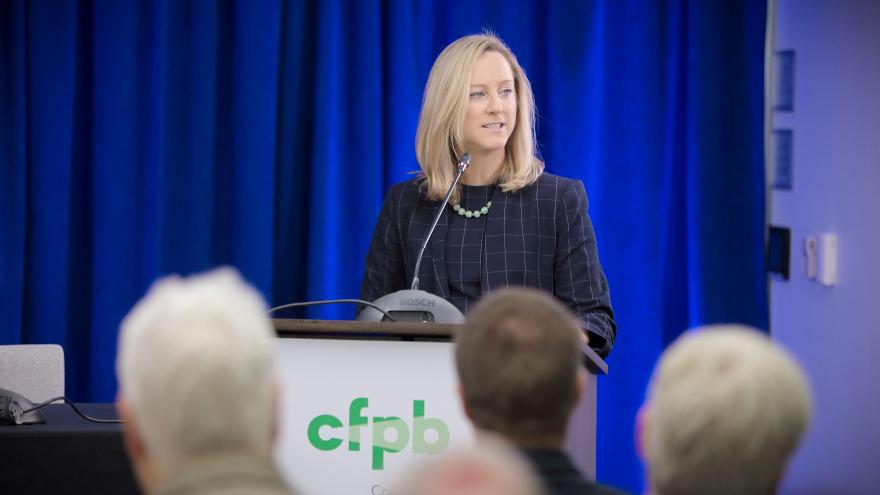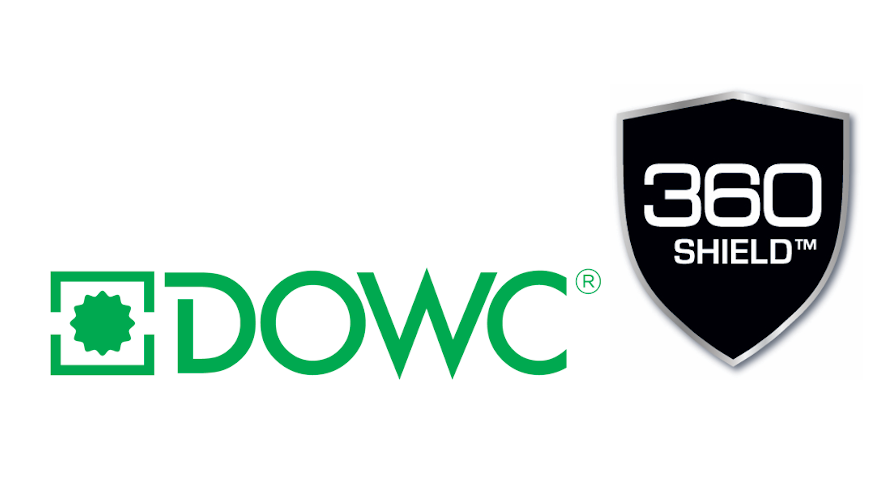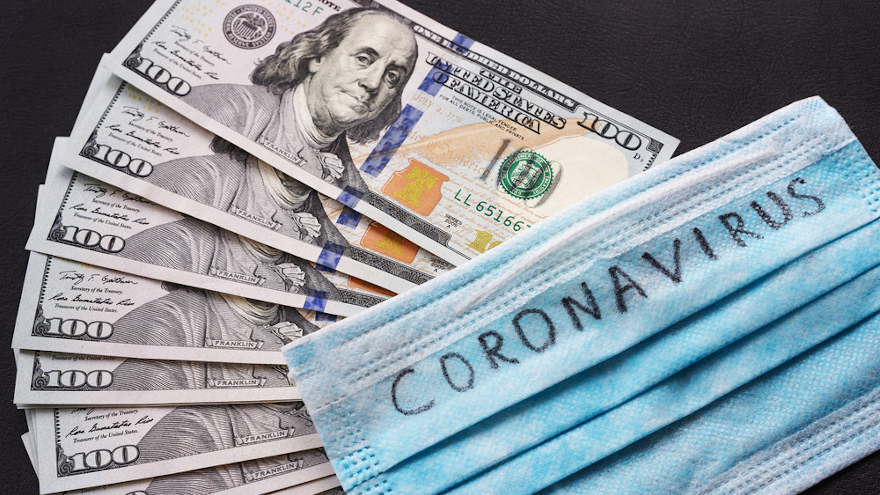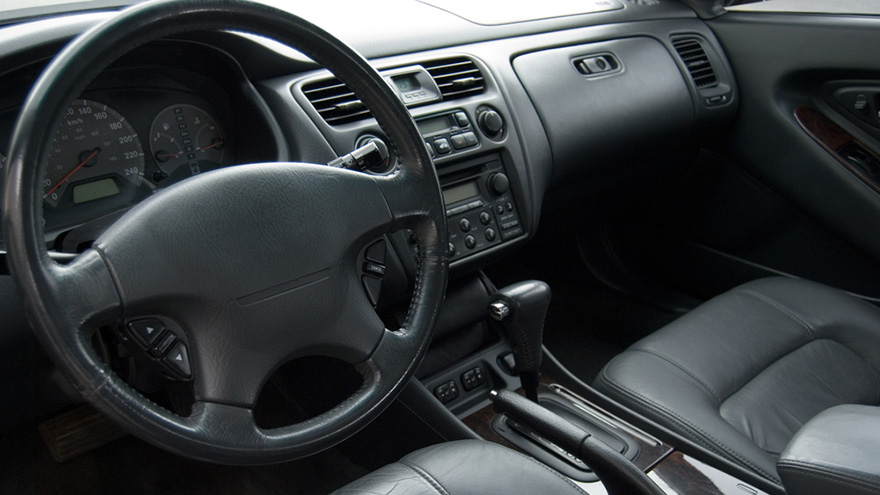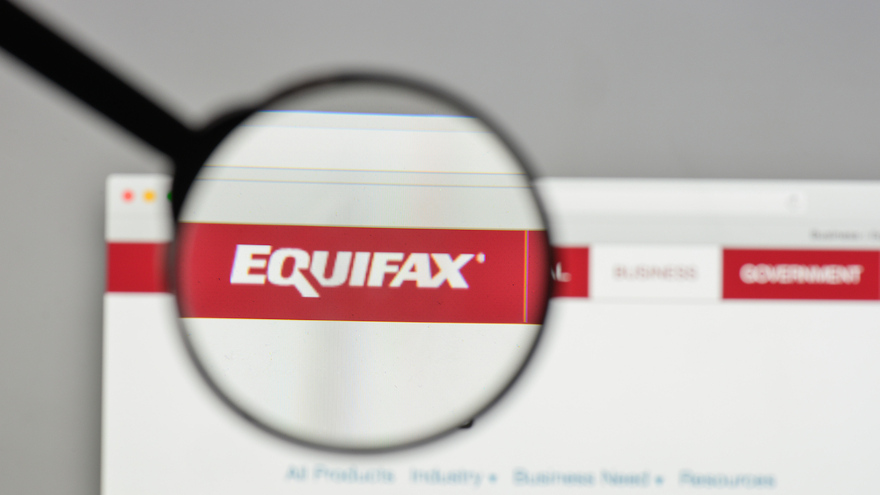Kroll Bond Rating Agency (KBRA) used the research for its latest auto-finance securitization indices to gauge the volume of both prime and non-prime retail installment contract holders maintaining their payments, at least for the March recording period.
At least for that juncture, KBRA determined April’s remittance reports showed that securitized auto financing continued to display stable credit performance during the March collection period. Analysts indicated annualized net losses and delinquency rates were mostly flat month-over-month in both their prime and non-prime indices.
“The solid performance was likely driven by the timing of borrower loan payments, as well as payment relief programs provided by servicers in the form of loan extensions,” KBRA said in its latest update released on Monday.
“In past reports, we have typically focused on the month-over-month and year-over-year change in annualized net loss rates and 60-day delinquencies,” analysts continued. “However, given that both metrics have a lag of more than one month, we have also included 30- to 59-day delinquency rates to provide a better gauge for how the coronavirus (COVID-19) pandemic affected borrowers in March.”
Based on asset-level disclosures, which are available for securitizations published in the public ABS market, KBRA estimated that roughly 50% of prime contract holders and 40% of non-prime contract holders made their March payment during the first half of March before initial jobless claims spiked.
Analysts also noticed prime and non-prime contract extensions — which KBRA are analogous to contract forbearance — rose sharply during the month, climbing to 3.6% of prime securitized pools and 6.7% of non-prime pools.
“We expect to see a spike in delinquency rates and/or a further rise in extension rates in both our prime and non-prime indices in May (April collections), as it will reflect the first full month where borrowers are faced with pandemic-related stresses,” analysts said.
KBRA also mentioned its review of April’s Reg ABS II asset-level disclosures showed credit metrics mostly weakened during the March collection period.
Analysts found that the percentage of prime and non-prime contract holders who went from 60-days delinquent to current fell 179 basis points to 23.3% and 13 basis points to 16.1%, respectively, versus the previous month.
Meanwhile, KBRA pointed out the percentage of prime contract holders who rolled from 60 days past due to charge-off rose 125 basis points to 15.3%, while the percentage of non-prime contract holders moving from 60-day delinquency to charge-off rose 120 basis points to 23.5%.
Analysts went on to note another notable sign of weaker credit performance — the percentage of prime and non-prime contract holders who rolled from 30-50 days to 60-89 days past due. KBRA said those metrics rose 183 basis points and 445 basis points month-over-month in March.
Consumer Financial Protection Bureau director Kathleen Kraninger had a busy public agenda last week, sharing remarks at National Association of Realtors 2020 legislative meetings as well as the public meeting of the Financial Literacy and Education Commission, along with a gathering of the Financial Stability Oversight Council.
During each of her appearances, Kraninger referenced the record volume of consumer complaints the bureau has recently received as well as what federal plans are in motion to help individuals and businesses impacted financially by the coronavirus pandemic.
“There is no doubt that COVID-19 has had a profound impact on our country, our economy and our individual lives,” Kraninger said at the meeting of regulators orchestrated by Treasury Secretary Steven Mnuchin.
“At the Consumer Financial Protection Bureau, we are focused on protecting consumers in the financial marketplace. That entails ensuring consumers have information on their rights, protections and options as well as ensuring financial institutions are in compliance with federal consumer financial law,” Kraninger continued.
“Through robust engagement with financial institutions, consumer advocates, government partners, and the public directly, the bureau monitors what is happening in the market and takes appropriate action,” she added.
Kraninger pointed out in March and April the bureau received approximately 36,700 and 42,500 complaints, respectively, marking the highest monthly complaint volumes in the CFPB’s history. She did not specifically mention auto financing when noting the volume figures; instead touching on credit reporting, debt collection, mortgages and credit cards as the generators of most complaints.
“A significant portion of complaints as a result of the pandemic are about issues consumers encounter when seeking alternative payment options for their mortgages, credit cards, auto loans and leases, student loans and other loans,” Kraninger said during the public meeting of the Financial Literacy and Education Commission, which she serves as vice chair.
“Consumers report that they are seeking changes to loan terms, such as suspension of payments, lower interest rates, longer loan terms and other ways to postpone or lower monthly payments because they have lost their jobs or are working fewer hours,” she continued. “The bureau’s complaint system and other stakeholder engagement mechanisms are important in informing the bureau’s work, including our supervisory and enforcement activity.
“I want to make clear that at all times, and particularly during this unprecedented crisis, we will not hesitate to take public enforcement action against companies or individuals that engage in unfair, deceptive, or abusive acts or practices, or otherwise violate consumer financial law,” Kraninger added.
“We are monitoring the marketplace in real time and coordinating on an ongoing basis with federal and state agencies and regulators. We are taking, and will continue to take, swift action when we identify companies or individuals that violate the law to exploit consumers,” she went on to say.
Kraninger acknowledged consumers are facing significant financial challenges. She referenced the bureau’s “Making Ends Meet” survey conducted last year that determined 52% of households would not be able to cover expenses for more than two months if they lost their main source of income by borrowing, using savings, selling assets or seeking help from friends or family.
“During this challenging time, I appreciate the commitment of everyone to come together and help consumers. We are all in this together and helping every consumer in need is our goal,” Kraninger told the National Association of Realtors.
“As was noted in my introduction, I worked in government during 9/11 and one of the things that struck me most was how Americans come together during a crisis,” she continued. “Regardless of how we identify based on where we live or our beliefs, we band together in time of need and help each other. I know that we have already been doing that and will continue to do so during the pandemic.”
For the second time this month, Dealer Owned Warranty Co. (DOWC) enhanced its menu of F&I products.
Coming on the heels of introducing NitroShield, a complete tire and wheel protection product, DOWC on Friday rolled out new 360Shield protection solutions enhanced with new antimicrobial products, providing improved vehicle protection.
The company highlighted the 360Shield antimicrobial protection treatment includes interior cleaning and protection processes for interior surfaces like the dashboard and seats, using an antimicrobial solution formulated to disinfect and prevent against mold, mildew, bacteria and other microbes like the COVID-19 virus.
Additionally, DOWC emphasized that the 360Shield disinfecting air quality and odor treatment is designed to work in a vehicle’s hard-to-reach areas, like the climate control system, using a specialized thermal fogger. Suitable for use on both porous and non-porous surfaces, the 360Shield air treatment is available in mint-scented or fragrance-free solutions.
Both 360Shield treatments are formulated to kill surface germs, as well as inhibit the future growth of bacteria and microbes, according to DOWC.
“We are very excited about what our two new additions to 360Shield will provide to the auto industry, as restrictions are lifted and dealerships reopen,” DOWC founder Michael LaMotta said in a news release. “Improved safety at dealerships means improved safety for dealers, car shoppers, and ultimately, vehicle owners everywhere.”
DOWC emphasized 360Shield solutions have been enhanced to meet the highest industry standards for sterilization and provide long-lasting, quality protection. Providing antimicrobial protection, the company said both the 360Shield antimicrobial protection treatment and 360Shield disinfecting air quality and odor treatment can preserve the quality and safety of the vehicle’s interior for the warranty period.
The full suite of 360Shield protective products, which also includes PaintShield, WheelShield, GlassShield, InteriorShield and BodyShield, is available to DOWC partner dealers and their customers.
All 360Shield treatments are backed by warranties that provide for the repair, repainting, or replacement of any covered parts.
For more information, visit www.dowc.com, call (201) 777-1000 or send a message to [email protected].
Since the widespread containment efforts caused by COVID-19, dealerships have been among the hardest-hit industries.
Much of this is as a result of dealerships either being forced to close, limited to online sales, or if they’re still open the virus has limited foot traffic in the showroom.
In fact, as of April 16, 24 states allowed dealership sales operations to remain open, according to J.D. Power. Another 23 states have allowed only online or remote sales. Michigan has only recently relaxed its ruling to allow online sales.
This means that contactless transactions are, at least for the near future, priority one in the transaction’s playbook for dealers. Because of this, F&I must play a leading role in helping educate people online during the research, transaction and post-sale phase of each sale.
Sales taking a significant hit
Preserving the transaction is the main priority currently as a result of the ongoing COVID-19 pandemic. The reason? IHS Markit recently lowered its global auto sales forecast for 2020 down 22% to 70.3 million units. It says the U.S. will fall 26.6% to just 12.5 million new vehicles sold, the lowest level since 11.6 million sales in 2010.
Where F&I can help the online process
If they weren’t focused here before COVID-19, dealers are now full speed ahead with online digital retailing options for customers. As part of this, more dealers are beginning to leverage additional online education of F&I options when shoppers are beginning their research online.
Dealers (and lender partners) want to make sure their customers are matched with the right vehicle, loan and terms up front. When it comes to additional F&I options, dealers want to leverage the online experience to remove any friction that historically was perceived to take place toward the completion of the deal inside the F&I office. While many F&I options can be beneficial to a car buyer, such as vehicle service contracts and ancillary protection plans, the customer may perceive these products as “upsells” at the last minute inside the F&I office.
Even before the COVID-19 pandemic, this friction was an issue. According to a recent industry survey, approximately 87% of car shoppers disliked some aspect of car shopping at dealerships, with the majority saying they felt pressure to buy right away or to buy additional F&I features. This pressure and mindset is reduced when car shoppers have information ahead of time on F&I product options. This allows them to research the benefits of these products in the comfort of their own home, as opposed to being in the F&I office where they don’t have time to make proper considerations.
Completing the transaction outside of the dealership
F&I can also be a great benefit to the contactless transaction at the completion of the deal and when the consumer then takes ownership of their delivered vehicle. Paperwork must be completed online through F&I and therefore it is imperative that each dealer has a robust and reliable online digital contract process necessary to complete each transaction outside of the dealership.
This “new normal” will certainly be critical for all involved – dealers, lenders and customers – in the near term, but the COVID-19 pandemic may also serve as a catalyst for longer-term change. As more dealer sales and F&I personnel are forced to work from home, and as consumers are weary of visiting dealers in person with physical handshakes, contactless transactions will continue to grow. Having the necessary digital retailing tools and resources available will not only help sales grow again, but over time it will help dealers build trust they need inside their communities.
Tim Blochowiak is vice president of dealer sales of Protective Asset Protection, a full-service provider of F&I programs offering vehicle protection plans, limited warranty programs, GAP, ancillary products, training and other services through vehicle dealerships. For more information visit www.protectiveassetprotection.com.
S&P Global Ratings is keeping an even closer watch on subprime auto financing with the coronavirus pandemic still paralyzing the economy.
This week, the firm placed its ratings on 33 classes of U.S. subprime auto ABS ratings across 26 transactions from 10 originators on CreditWatch with negative implications, following analysts’ review of all ABS transactions backed by subprime auto receivables.
The 10 subprime finance companies involved in this action include:
— American Credit Acceptance
— Bridgecrest Acceptance
— Consumer Portfolio Services
— Exeter Finance
— First Investors Financial Services
— Flagship Credit Acceptance
— Global Lending Services
— Prestige Financial Services
— Sierra Auto Finance
— Westlake Financial Services
The firm pointed out the actions are on securities rated below investment grade (below BBB-).
“The CreditWatch listings result from the COVID-19 economic downturn, which we expect to negatively affect the performance of all auto loan originators,” S&P Global Ratings said in a message sent to SubPrime Auto Finance News. “The most recent performance reports already show an increase in delinquencies and extensions.
"Although we expect this increase in extensions to be temporary and the economy to begin to rebound in the second half of the year, we believe this will still lead to higher cumulative net losses and reduced excess spread over the life of each transaction,” analysts continued. “As a result, the tranches placed on CreditWatch may not have sufficient enhancement to support the current ratings.”
S&P Global Ratings reported the COVID-19 pandemic is starting to take a toll on monthly auto ABS credit performance.
The firm indicated March’s subprime loss rate of 8.37% was the highest March loss rate since 2009 and the segment’s recovery rate and 60-day delinquency levels were at the worst March levels S&P Global Ratings has ever seen.
Also, analysts pointed out March’s prime recovery rate of 53.89% was the lowest March recovery rate they’ve spotted since 2009.
In determining which transactions to place on CreditWatch, S&P Global Ratings explained that it reviewed its current expected cumulative net losses and increased the remaining expected cumulative net losses by 15% in its analysis to see which classes had enhancement sufficient at the current rating levels. Analysts based this scenario on the approximate 30% increase in losses relative to original expected cumulative net losses that the subprime transactions they rated in 2007 experienced during the credit crisis.
As its rating approach incorporates a forward view of the economy, S&P Global Ratings said it believes the current unprecedented recessionary environment justifies increasing our base-case losses for securitizations.
Analysts’ current baseline forecast is for unemployment levels to increase to an average of 8.8% for 2020, declining to an average of 6.7% in 2021; therefore, not remaining at elevated levels as long as they did during the Great Recession, according to the firm.
“As such, we believe performance deterioration could be relatively muted,” S&P Global Ratings said. “However, there is a great deal of uncertainty around this forecast, as it depends on the containment of the pandemic, how quickly business activity can resume, and the effectiveness of the fiscal stimulus/relief programs.
“We will continue to closely monitor and refine our expected cumulative net losses as more performance metrics become available,” the firm continued.
S&P Global Ratings also mentioned that its team took into account the various structural features for each rated note. Analysts pointed out all the transactions contain a sequential principal payment structure by which the notes are paid principal by seniority.
The firm noted each tranche also has credit enhancement in the form of a non-amortizing reserve account, overcollateralization, subordination (for those few tranches that are not the most subordinated class) and excess spread. For most tranches, S&P Global Ratings computed the credit enhancement for each class’ credit support continues to increase as a percentage of the amortizing collateral balance, which may offset some of the potential increase in its expected cumulative net losses.
S&P Global Ratings projected the securities most at risk of downgrade are speculative grade — ones rated BB+ (sf) or lower). By definition, analysts explained these classes have lower credit enhancement with which to cover higher-than-expected losses.
“Further, a large portion of credit support for these deeply subordinated classes comes from excess spread, which is volatile and can be impaired by a number of factors, including the timing of losses,” analysts said.
The firm is expecting to resolve the CreditWatch placements as it learns more about the severity and duration of the COVID-19-induced impact on the sector as a whole and on each of the respective issuers more specifically.
“During this time, we will continue to review industry data and transaction-level performance reports, and continue to speak with the originators to inform our view of each transaction’s future performance,” analysts said.
S&P Global Ratings acknowledged a high degree of uncertainty about the rate of spread and peak of the coronavirus outbreak. The firm recapped that some government authorities estimate the pandemic will peak around midyear, so analysts are using this assumption in assessing the economic and credit implications.
“In our view, the measures adopted to contain COVID-19 have pushed the global economy into recession,” analysts said. “As the situation evolves, we will update our assumptions and estimates accordingly.
S&P Global Ratings went on to predict the recession could negatively affect contract holders in the subprime pools to a greater extent than consumers within the prime segment. Many contract holders in the subprime pools may not have savings to cover a temporary loss of income, according to the firm.
“Consideration was given to the governmental support programs related to the health pandemic for both businesses and consumers — most notably the CARES Act, which, among other things, provides expanded unemployment benefits and one-time stimulus checks for individuals below certain income levels,” analysts said. “These payments may offset loss of income for some borrowers, decreasing the amount of cumulative net losses the transactions may have incurred had the measures not been enacted.
“From discussions with issuers, these payments and extensions have thus far limited the impact on the transactions' performance,” analysts continued. “However, we don’t believe this trend will continue over the longer term as consumers stop receiving the stimulus checks and recoveries on charged-off accounts decrease, coupled with a less favorable economic environment than what existed in previous years.”
Portfolio highlighted buyers who are financing their purchase nowadays are acquiring more than just GAP protection or vehicle service contracts from the F&I office.
According to internal data from the national provider and administrator of F&I products and dealer participation programs, antimicrobial treatments gained ground as a percentage of all F&I product sales in March and April. Portfolio indicated the trends reflect a renewed interest in eliminating and protecting against disease-causing pathogens among dealers, agents and consumers.
Applied to new and pre-owned vehicle and RV interiors at the dealership using provider-supplied chemicals and a sprayer or fogger, Portfolio explained antimicrobial treatments are designed to eliminate and protect against pathogens and fungi that can transmit illnesses or cause odors and stains.
Antimicrobial treatments accounted for nearly 35% of chemical-based F&I products sold by Portfolio dealers in March and April, a nearly 20% market-share gain from the same period a year ago, executives reported.
And Portfolio said the category’s share of all F&I product sales grew to nearly 3% even as total sales declined.
“Those were down months for us, of course, as they were for all providers, so this is encouraging news,” Portfolio vice president of sales and marketing Tanya Stevenson said in a news release. “Having partnered with Cilajet and, more recently, Ultimar, we understand the value of these treatments and the advancements they have made over the past several years.”
With local and statewide stay-at-home orders expected to loosen in the months ahead, Stevenson encouraged dealers and agents to continue to make antimicrobials a priority.
“Wherever we stand in the fight against the pandemic, treating the interior is a smart choice for every vehicle and every customer, including those who declined at time of sale,” she said. “It’s a concrete step we as an industry can take to promote the health and safety of all Americans.”
Equifax shared its latest look at auto-finance delinquency based on data available through April 28. While experts said their overall delinquency reading is “not as high as we were anticipating it could be,” Equifax did find younger customers are navigating their budget challenges created by the coronavirus pandemic better than their older contemporaries.
According to the data sent to SubPrime Auto Finance News this week, delinquent contracts surpassed 3.17% of all outstanding auto financing. During a four-week stretch from April 7 through April 28, the number of delinquent accounts grew from 2.58 million to 2.63 million. The balance attached to those contracts also rose from $33.58 billion to $33.89 billion.
Equifax pointed out that April typically represented a cyclical decline in delinquency because some customers use their tax refund money to bring their accounts back to current. Jennifer Reid, vice president – automotive marketing & strategy leader – U.S. information solutions (USIS) at Equifax, touched out analysts’ suspicions about what the auto-finance delinquency data might be before gathering it and then their reaction when they uncovered the figures.
“Overall, we were generally expecting delinquency to increase given the unprecedented impacts from COVID-19. However, I think what was interesting is that it is not as high as we were anticipating it could be,” Reid said.
“While we recognize that it is still early, it appears that consumers are still paying their debt,” she continued. “We are anticipating delinquency to stay relatively lower, at least in the near term, due to enhanced unemployment benefits, stimulus and accommodations being made by lenders under the CARES Act which will keep positive accounts reporting positive.
“We will need to continually watch these trends closely to see if any additional economic impact from COVID-19 is realized,” Reid went on to say.
Equifax’s latest data also indicated that younger consumers are maintaining their contracts at better rates than older customers. Equifax indicated customers who fall into Gen Z (23 and younger), millennials (age 23-39) and Gen X (40-54) have seen their delinquent balance stay nearly steady during the reporting period at 2.04 million accounts.
But for customers age 55 and older, the number of delinquent contracts rose from 556,000 to 582,000 with the outstanding balance involved growing from $6.99 billion to $7.25 billion.
Reid offered a reason why thus far younger demographics have better delinquency performances currently as opposed to older populations.
“Typically, the younger demographic has less overall financial obligations, with the exception of student loan debt. In response, we saw the CARES Act provide relief in the way of suspending student loan payments until Sept 30, and this in conjunction with the other forms of assistance,” she said.
While the delinquency data might not be as dire as Equifax initially suspected, there appear to be consumer ingredients in the marketplace that could lead to more deterioration.
Also released this week, LendEDU published its third survey of 1,000 adult Americans, tracking how the pandemic is impacting finances. Among the newest highlights:
• 26% of eligible respondents have still not received their stimulus checks, while 52% of those who have been laid off have filed for unemployment benefits but 54% have yet to receive those unemployment benefits.
• Amongst those individuals who haven’t yet received unemployment benefits, 79% have already had to use funds from a savings account to cover expenses, 86% are worried about running out of money and 42% have had to take on more credit card debt then desired.
• 62% are concerned about their retirement savings, which is down from 72% on April 1. The drop could be due to the strong performance of the market as of late.
• The average American has spent $987 on food and supplies since the pandemic started here in the U.S. This is up 56% from the second survey and 194% from the first survey.
• Once lockdown measures are lifted, 26% of respondents said it will take them between one and three months to begin going out again and spending money as consumers like they used to, while 18% said it will take them 3-6 months, and 16% said between two weeks and one month. 13% said between six months and one year, 10% said immediately, and 7% said over one year.
Finance companies are rolling record amounts of negative equity into the new-vehicle paper they’re originating nowadays.
While providers might be prudent as to how deep down the credit spectrum the most generous new-model offers are extended, Edmunds reported on Tuesday its data shows April established an all-time record as 44% of new-vehicle sales with a trade-in had negative equity. That figure is up from 40% in March and 33% in April of last year.
Furthermore, analysts discovered the average amount owed on upside-down installment contracts also climbed to an all-time record high of $5,571 in April, compared to $5,405 in March and $5,036 last April.
“At first glance, the numbers are certainly alarming, but there are some potential upsides for shoppers with negative equity who purchased a vehicle in April compared to those who did so just a year ago,” Edmunds senior manager of insights Ivan Drury said in a news release.
“Automakers are offering some of the most generous incentives we’ve seen in decades to generate demand during the pandemic, and consumers stuck in high-interest loans might be able to make these work to their advantage,” Drury continued.
In a deeper analysis, Edmunds also generated an array of year-over-year comparisons about new-vehicle financing, looking at terms, interest rates, total amount financed and age of the trade.
|
Year-Over-Year Finance Metrics for Consumers Financing with Negative Equity
|
|
Date
|
Term
|
Monthly Payment
|
Amount Financed
|
APR
|
Down Payment
|
Negative Equity
|
Trade-In
age
|
Total Interest Over
Life of Loan
|
|
April 2019
|
76
|
$ 638
|
$ 38,614
|
7.3
|
$ 2,004
|
$ 5,502
|
4.0
|
$ 9,727
|
|
April 2020
|
77
|
$ 653
|
$ 43,419
|
4.7
|
$ 1,913
|
$ 5,868
|
3.9
|
$ 6,960
|
Source: Edmunds
“Most experts would traditionally advise consumers against trading in their vehicle if they're upside down on their car loan. However, the market is in a unique place right now due to the coronavirus pandemic,” Drury wrote in that analysis.
“To help spur sales, automakers are offering extremely generous financing incentives, and consumers could use these offers to their advantage to put themselves in a better financial situation,” he continued.
“Individuals who are underwater on their car loan or are trying to get out of a high-interest loan could essentially reset their loan and acquire a newer and nicer vehicle, for a similar monthly payment,” Drury went on to say.
Drury elaborated about the trade-in metric Edmunds discovered. He reiterated that typically, the trade-in age of a vehicle directly correlates to consumer loyalty with older trade-ins resulting in lower loyalty.
“Encouraging consumers to roll their negative-equity loans into a new purchase with a longer loan term would seem to be extremely risky for automakers,” Drury said. “However, given how much better current interest rates are, consumers might be able to make a longer-term loan work to their advantage with the appropriate guidance and education from lenders.
“And from a loyalty standpoint, they might be more inclined to stick with a brand that was there for them during a stressful time in their lives,” he added.
Furthermore, Drury pointed out how this negative-equity situation could present dealerships with the chance to generate some much-needed revenue via the finance office.
“Dealers have the opportunity to sell extended warranties and service contracts to help allay the concerns of customers financing a long-term loan with negative equity,” Drury said. “GAP insurance also presents a good selling opportunity since it can mean the difference between a consumer owing money on a vehicle determined to be a total loss in an accident versus walking away with no financial responsibility.”
Some criticize the risk involved in longer loans because they outlive most warranties, but this has already been the case for over a decade: The average loan length hit 60 months in January 2003 and consumers haven't turned back since,” he continued.
“For the millions of consumers who are currently upside down on their auto loans, the opportunity to purchase a new car at a much lower interest rate is a very compelling prospect, especially as this recession has consumers reevaluating their monthly budgets,” Drury concluded.
With some business segments slowly emerging from coronavirus pandemic shutdowns, Darwin Automotive announced major enhancements to its free COVID-19 support package to help auto dealers succeed in current market conditions.
According to a news release distributed on Monday, the free tools include a secure fully integrated video conferencing platform. Darwin said it has also partnered with a marketing company and is providing every digital retailing customer with a dynamic video package that includes the correct messaging for customers at this time. The videos come with a step-by-step marketing plan precisely outlining a success strategy to drive more sales and service appointments using video and the right messaging on the dealer's website, social media channels, email blasts and more.
These tools are provided free to its existing customers nationwide for the life of their agreement, according to Darwin Automotive chief executive officer Phillip Battista.
“We’ve heard from concerned dealers and OEMs everywhere that some things are looking up, and it is time to be prepared to drive in sales and service business,” Battista said in the news release. “We researched what could be the most help at this time and have added a support package that includes some highly effective video tools.
“Our integrated secure video allows for virtual sales and F&I with the same ‘eyeball to eyeball’ capabilities you have when the customer is right in front of you,” Battista continued. “We strongly believe that current conditions will be the norm into the foreseeable future and want to ensure our dealers have real tools that will help.”
Darwin went on to highlight what its free enhanced CVOD-19 support package includes.
First, Darwin Automotive pointed out that it has made a significant strategic investment in a fully integrated secure videoconferencing platform for all Darwin applications. Free access is provided to both existing and new customers for the life of their agreement for the digital retailing platform and the F&I menu.
The company explained customers are required to register with the provider to obtain a secure URL at a nominal monthly fee. This URL can be utilized by multiple people and departments within the dealership.
Darwin’s application can enable dealers to record transactions and share screens and windows. The tool also can allow customers to present to the dealership, all in a secure encrypted environment.
Second, Darwin has partnered with a marketing company and is providing each new and existing digital retailing customer with the following free tools:
• A dynamic video package with messaging customized for their dealership.
• A professional step by step marketing and deployment plan that outlines the dealership’s success strategy showing precisely how to use dynamic video and correct messaging on their website, social media, in email marketing and through other media channels to drive in sales and service traffic.
“It’s all very well to have the tools, but other than larger dealer groups, most dealers do not have the knowledge or resources to correctly use video to market to their advantage. It is an invaluable tool in the current market and these free tools should save dealers thousands of dollars, which they truly need right now,” Battista said.
“We will continue to make investments to secure our customers’ future as we come out of this crisis. We are here and stand ready to help,” he went on to say.
Darwin Automotive currently operates in all 50 states with more than 5,800 dealerships subscribed to its programs
Darwin said it delivered 504,000 deals on its platform last month and is on track to deliver 6.5 million units for the year.
For more information, send a message to [email protected], call (732) 781-9010 or visit darwinautomotive.com.
Typically, the most attractive new-vehicle financing terms and rates from captives only are granted to consumers who reside in the highest credit tiers.
With more than 30 million workers now unemployed and trillions of dollars in federal assistance being pushed into a U.S. economy nearly grounded completely because of the coronavirus pandemic, these certainly are not typical times.
However, new information from J.D. Power indicated that captives are funding deals to non-prime and subprime customers with their most generous terms and rates but at what might be considered a prudent pace.
Of the new-vehicle financing completed between March 1 and May 4, J.D. Power reported just 4.5% of that paper with the most generous offerings — 0% APR for 84 months — went to individuals whose credit scores fell into the non-prime or subprime credit tiers. J.D. Power explained credit scores for its analysis are derived from FICO 2008 Auto at the date of origination with the tiers being:
Super-prime: 740 and above
Prime: 660-739
Non-prime: 620-659
Subprime: 619 and below
In a message to SubPrime Auto Finance News, Michael Buckingham, managing director of PIN Auto Finance at J.D. Power, said, “Overall the credit quality is very good.”
Buckingham pointed out that overall loan-to-value metrics were higher overall during this reporting period.
“But keep in mind these loans are with higher credit score consumers who may be taking advantage of 0% APR,” he said. “Why put a down payment when you can redeploy those funds elsewhere?”
Buckingham shared another note about the 0% APR, 84-month offers often highlighted in stirring television commercials filling the airwaves since the crisis began.
“Not everyone needed to be a ‘well-qualified buyer’ to get 0% for 84 months,” Buckingham said. “One of the Big 3 captive/OEMs was offering this program across the board and drove approximately more than half of the non-prime and subprime 84-month, 0% loans during this period.
“I’ll also add that the advances on that chunk of business were generally in-line with their peers,” he went on to say.
New Loan Credit Mix from 3/1/20- 5/4/20
|
New Credit Mix
|
740+
|
660-739
|
620-659
|
0-619
|
|
New 0%, 84-Month Financing
|
70.34%
|
25.13%
|
3.47%
|
1.06%
|
|
New 0%, Non-84 Month Financing (Captives Only)
|
68.51%
|
21.87%
|
4.94%
|
4.68%
|
|
New Non-0% Financing (All Terms, All Lenders)
|
51.10%
|
27.05%
|
9.86%
|
11.99%
|
|
New 72+ 2019 Full Year Industry Avg
|
|
|
|
|
|
46.56% |
28.92% |
10.66% |
13.87% |
|
New LTV Mix
|
0-99% LTV
|
100-109% LTV
|
110-119% LTV
|
120%+ LTV
|
|
New 0%, 84-Month Financing
|
21.42%
|
25.96%
|
30.37%
|
22.25%
|
|
New 0%, Non-84 Month Financing (Captives Only)
|
37.10%
|
22.73%
|
21.36%
|
18.81%
|
|
New Non-0% Financing (All Terms, All Lenders)
|
35.70%
|
16.82%
|
18.10%
|
29.37%
|
| New 72+ 2019 Full Year Industry Avg |
28.30% |
17.78% |
20.47% |
33.45% |
Source: J.D. Power
Incentive spending per unit hits record high
In a separate analysis, J.D. Power also discussed the amount of incentives automakers are connecting to new vehicles to help dealerships retail these units.
Analysts said incentives hit a record level of $5,000 per unit for the week ending May 3. Week-over-week increases were driven by higher premium share and lease mix, according to J.D Power’s COVID-19 Auto Industry Impact Report released on Wednesday.
J.D. Power also mentioned incentive activity for premium brands increasing, too.
“Although incentives on premium brands remain far less aggressive than non-premium brands, there have been multiple enhancements to premium incentive programs over the past several weeks,” analysts said.
“A majority of premium brands now offer 90-day payment deferrals and Audi, Lincoln, Jaguar Land Rover, Volvo and Infiniti are all offering 0% financing on certain models,” J.D. Power continued. “None, however, have launched 84-month financing offers similar to those available on non-premium vehicles.”


